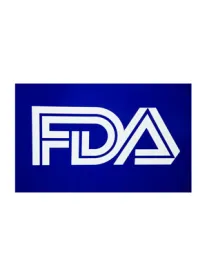The U.S. Food and Drug Administration (FDA) has denied a request for a public hearing on its May 2017 decision to deny a Food Additive Petition to remove several clearances for perchlorate from use in food-contact applications. By way of background, the Food Additive Petition was submitted in 2014 by the Natural Resources Defense Council (NRDC) and eight other nongovernmental organizations (NGOs). It requested that FDA:
-
Revoke its 2005 approval of Threshold of Regulation (TOR) exemption No. 2005–006 authorizing up to 1.2% sodium perchlorate monohydrate as a conductivity enhancer for use in dry food packaging applications;
-
Issue a new regulation under Part 189 of Title 21 of the Code of Federal Regulations (C.F.R.) adding potassium perchlorate to a “negative list” of substances prohibited from use in food-contact applications; and
-
Remove the clearance in Section 177.1210 for potassium perchlorate when used as an additive in sealing gaskets for food containers.
FDA originally denied the NGOs’ petition in 2017 (82 Fed. Reg. 20847). On the same day that the petition was denied, FDA also announced that it was removing the clearance for potassium perchlorate from Section 177.1210 based on an abandonment petition submitted by industry, thereby rendering the NGO petition moot. (See the PackagingLaw.com article, FDA Removes Clearance for Potassium Perchlorate in Sealing Gaskets Based on Abandonment.)
On June 4, 2017, the NGOs requested a formal evidentiary public hearing on the denial. (See the PackagingLaw.com article, NGOs Request Hearing on FDA’s Denial of Their Perchlorate Food Additive Petition.) In responding to that request, FDA noted that Section 409(f) of the Food, Drug, and Cosmetic Act (FD&C Act) allows any person adversely affected by an order relating to a food additive regulation to “file objections, specifying with particularity the provisions of the order deemed objectionable, stating reasonable grounds therefor, and requesting a public hearing upon such objections.” FDA also explains that it may deny a hearing request if the objections to the regulation do not raise genuine and substantial issues of fact that can be resolved at a hearing (see Community Nutrition Inst. v. Young, 773 F.2d 1356, 1364 (D.C. Cir. 1985)).
The NGOs listed three objections in their request for a formal evidentiary public hearing. First, they claimed that FDA relied on a flawed interpretation of the definition of a food additive in its Threshold of Regulation (TOR) Rule in dismissing Request A (above). Second, and procedurally – that FDA accepted the NGOs Food Additive Petition, then later determined that Requests A and B were not eligible for consideration as Food Additive Petitions. Third, FDA did not make a timely decision on the NGOs’ request that the Agency remove the clearance for the use of perchlorate in gaskets for food containers based on safety reasons, thereby allowing the removal of the clearance based, instead, on an abandonment petition filed by industry after the NGOs’ petition.
In FDA’s denial of the NGOs’ request for a public hearing (84 Fed. Reg. 17113), the Agency concluded that Objections 1 and 2 were not within the scope of the objections and hearing provisions under section 409(f) of the FD&C Act. Concerning Objection 3, FDA determined that it did not raise any genuine and substantial issue of fact that would justify an evidentiary hearing.



 />i
/>i

